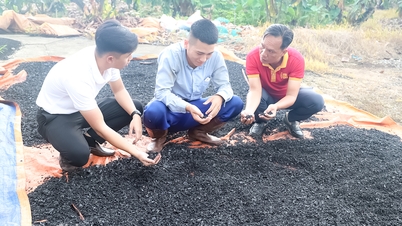Israeli archaeologists have discovered a wine press dating back some 5,000 years, along with evidence of Canaanite folk rituals, shedding light on early urbanization and religious life in the Jezreel region.
The Israel Antiquities Authority (IAA) has just announced a series of special archaeological discoveries during excavations ahead of the construction of a new highway.
In the area east of Tel Megiddo, archaeologists found a rock-cut wine press dating back about 5,000 years—one of the oldest ever discovered in Israel—and evidence of Canaanite folk worship from about 3,300 years ago.
According to Dr. Amir Golani and Barak Tzin, IAA excavation directors, the wine press is “very rare and of particular value, as it belongs to the early stages of urbanization in the area.”
The cellar was carved directly into the rock with a sloped surface and a tank underneath. “We previously had only indirect evidence that wine was being produced 5,000 years ago, but this is the first definitive evidence to confirm it,” the two archaeologists stressed.
Around the pressurized pit, the excavation team also found traces of an ancient residential area, showing that this was once an important community center of that period, extending beyond the main site of Tel Megiddo.
Next to the wine cellar, archaeologists also discovered a collection of intact religious objects dating back about 3,300 years, buried intentionally as sacrificial objects.
The collection includes miniature ceramic temple models, large vessels, imported pottery from Cyprus, and a set of animal-shaped ritual implements, notably a ram-shaped vessel used in ritual pouring of sacred liquids.
The researchers describe: “The ram-shaped vessel has a spout at the head. A small bowl is attached to the body of the vessel as a funnel, and a bowl with a handle is used to pour liquid – possibly milk, oil, or wine – into it. When tilted forward, the liquid flows from the ram’s mouth into the small bowl in front. This is a rare example of a Canaanite libation ritual.”
The discovery of intact ritual utensils - a rare find - gives archaeologists the first insight into how Canaanites performed daily rituals millennia ago.
The fact that these objects were buried near the main temple of Megiddo during the Late Bronze Age may indicate that this was a form of extra-urban folk worship, the researchers say. Peasants who were not allowed into the main temple complex may have brought their produce – wine, oil or precious agricultural products – to this area to make offerings.
Some items were found intact next to a large rock outcrop, which may have served as an outdoor altar.
Large-scale excavations in the Jezreel Valley are revealing layers of history buried underground, said Eli Escusido, director of the Israel Antiquities Authority.
The discovery of an ancient wine production facility and evidence of folk worship in Megiddo helps researchers gain a deeper understanding of the lives and beliefs of the region's residents over thousands of years./.
Source: https://www.vietnamplus.vn/israel-phat-hien-ham-ep-ruou-duoc-duc-vao-da-co-nien-dai-khoang-5000-nam-post1075093.vnp


![[Photo] Prime Minister Pham Minh Chinh receives the delegation of the Semiconductor Manufacturing International (SEMI)](https://vphoto.vietnam.vn/thumb/1200x675/vietnam/resource/IMAGE/2025/11/06/1762434628831_dsc-0219-jpg.webp)




































































































Comment (0)